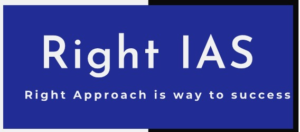Current affairs 22nd July By Right IAS
Resignation of Vice President in India
Vice-President Jagdeep Dhankhar, 74, resigned from his post citing health reasons on Monday. “To prioritise health care and abide by medical advice, I hereby resign as the Vice President of India, effective immediately, in accordance with Article 67(a) of the Constitution,” Constitutional Provisions. The Vice President of India is the second-highest constitutional office. Article 67(b) of the Indian Constitution deals with the resignation of the Vice President.
Resignation Process
To Whom Does the Vice President Resign? The Vice President resigns by writing under his hand addressed to the President of India. No specific format is prescribed by the Constitution. Effective Date: The resignation becomes effective from the date it is accepted by the President. Voluntary Act: The resignation must be voluntary and not forced or obtained through coercion.
After Resignation: What Happens?
A vacancy is declared. Election to fill the vacancy must be held within six months. Until a new Vice President is elected, the office remains vacant. In the meantime, the Deputy Chairman of the Rajya Sabha presides over the House
The Hindu
UK-India Free Trade Agreement (FTA) and the role of Global Capability Centres (GCCs)”
Context India and the UK are moving towards finalizing a historic Free Trade Agreement (FTA). A key area of collaboration under this FTA is the Global Capability Centres (GCCs) sector.
What are GCCs?
GCCs are offshore units set up by multinational companies for strategic functions like R&D, cybersecurity, analytics, etc. India is home to 1,500+ GCCs, employing 1.9 million people. India is emerging as a global hub for innovation, moving beyond just back-office operations. Importance of the UK-India FTA Could be a game-changer for deepening economic ties and expanding the GCC ecosystem. Can address regulatory challenges and improve mobility of professionals, digital/data governance, and IP frameworks. Helps UK companies access India’s digital economy and India to attract investment in tech services.
Why this matters for the UK Post-Brexit, UK seeks greater access to digital and services markets. FTA allows the UK to strengthen its global innovation footprint through partnerships with Indian GCCs. Why this matters for India Aligns with India’s: Digital economy goals Skilling and employment agenda Target to become a global service hub Opportunity to leverage British expertise in R&D and innovation. Current Initiatives Supporting GCC Growth Central Government Initiatives: MeitY formed a panel (NASSCOM, Zinnov, KPMG) to create a national GCC framework (Budget 2025). Focus areas: talent, innovation, infrastructure, legal facilitation. State-level Efforts: Uttar Pradesh hosted a GCC Conclave showcasing its readiness in cities like Lucknow, Varanasi, Kanpur, Prayagraj. States offering incentives, infrastructure support, and How FTA Can Help GCCs
Resolve issues like
Double taxation
Data localisation requirements
Misaligned digital standards
